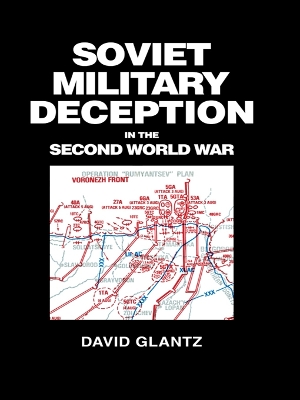Soviet Russian Military Theory and Practice
1 primary work • 4 total works
Book 1
Published in 1989, Soviet Military Deception in the Second World War is a valuable contribution to the field of Military & Strategic Studies.
Armed revolution and civil war gave birth to the Soviet Union, world War II propelled it to global pre-eminence, and the Cold War contributed to the Soviet Union's demise. Given Marxism-Leninism's idological preoccupation with war and threats of war, it is understandable that the spectre of war should play a vital role in the life and fate of the Soviet state.
This study of Soviet military strategy is based upon the twin pillars of Soviet political-military actions and Soviet writings on the subject of military strategy. Thanks to the policy of glasnost, it incorporates Soviet materials hitherto unavailable in the West. It aims to be not simply a retrospective account of what was, but to form part of the context for what will be in the future.



